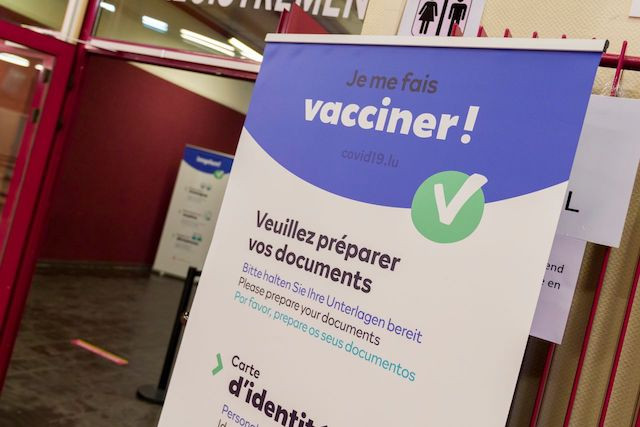The survey was conducted by Science.lu, a platform for science communication, and questioned some 2,553 people via Facebook and its own website between 30 November 5 December.
While its authors stress that the results are “not representative” of the entire Luxembourg population, since it is the first survey of its kind to be published in the grand duchy, it provides a litmus test at a time when the European Medicines Agency has already licensed one vaccine and is expected to deliver a decision on a second.
Compared to other countries, the results suggest Luxembourg has among the lowest vaccine readiness, though readiness tended to increase with age.
In Luxembourg women respondents showed greater levels of vaccine hesitancy, contrary to a study in Nature Medicine which found the opposite. Readiness was also found to be highest among people who said they felt well-informed about vaccination. German respondents were the most-likely to get vaccinated while Belgians and Portuguese were the least likely. Luxembourgers and French occupied the middle ground.

Of respondents, 55% said they would be willing to be vaccinated but to successfully help eradicate the pandemic, virologists say countries must vaccinate between 60 and 70% of a country’s population. Since under 16s are not allowed to be vaccinated, Luxembourg would need to aim to vaccinate around 83% of the adult population to achieve the 70% immunity goal, the report found.
“If about 55% of the population over the age of 16 were to be vaccinated, and the vaccine is effective and safe, this could bring down mortality and relieve the burden on hospitals, but not yet lead to a situation where the R-value in the population is pushed below 1 by immunity alone. For the latter state, higher vaccination coverage would be needed,” Science.lu reports.
The authors went on to speculate that vaccine readiness would evolve over time, with attitudes depending on the effectiveness of the vaccines, side-effects and how they are communicated in the media.
An international study by Kantar and another study in Nature Medicine found that Italy has the highest vaccination readiness at 78%, followed by Australia (76%) and the UK (75%). The latter was the first European country to roll-out vaccination in December 2020. Luxembourg was found to have the highest proportion of respondents who said it was “very unlikely” they would be vaccinated, at 22%.
